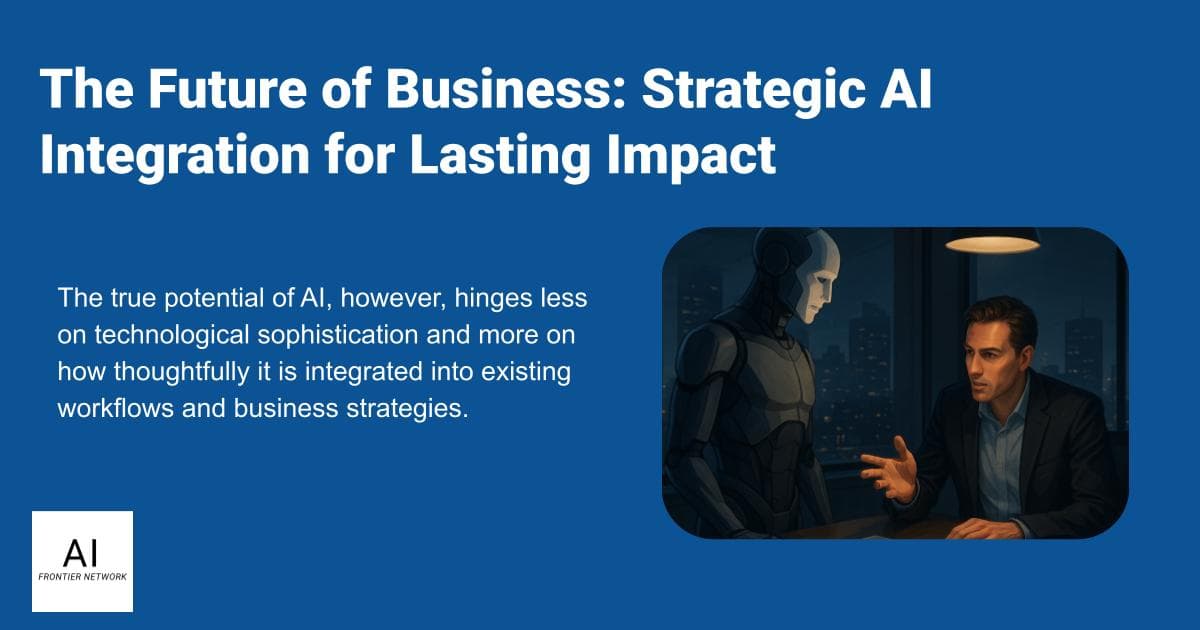Artificial Intelligence (AI) is increasingly recognized not merely as a technical asset but as a strategic partner capable of driving profound transformations across businesses. The true potential of AI, however, hinges less on technological sophistication and more on how thoughtfully it is integrated into existing workflows and business strategies. Particularly for small and mid-sized businesses (SMBs), strategic and ethical deployment of AI offers significant opportunities for meaningful growth and innovation.
Purposeful Integration for Sustainable Impact
Successful AI integration must begin with clear strategic intent rather than succumbing to industry hype. Nivedan S. emphasizes the necessity of intentional AI adoption aligned directly with business goals, advocating incremental approaches starting with tasks such as customer support enhancements or repetitive tasks. Similarly, Balakrishna Sudabathula recommends initiating AI adoption through defined, low-risk applications that demonstrate early value and build momentum for broader implementation.
Embedding AI deeply within existing business processes ensures its capabilities are fully utilized, transforming AI from a mere predictive tool into a proactive collaborator. Rajarshi T. highlights that deep integration, matched with ethical data practices and robust MLOps pipelines, significantly enhances the transformative potential of AI. Ram Kumar N. further notes that meaningful integration requires operationalizing AI within actual business decisions and workflows rather than merely deploying models.
Navigating Ethical Considerations with Human Oversight
AI systems inherently lack the nuanced ethical judgment and contextual understanding that humans possess. Continuous human oversight is crucial for maintaining accountability, fairness, and ethical alignment. Rene Eres points out that human cognitive abilities, such as empathy and moral judgment, are essential to interpreting AI outputs effectively and ethically. Niraj K. Verma reinforces the critical role of oversight, particularly in sensitive sectors, ensuring that AI decisions remain fair, transparent, and aligned with organizational values.
Effective oversight systems combine human judgment with AI’s analytical capabilities, creating safeguards against biases and unintended consequences. Rajesh Sura advocates designing transparent systems with clear escalation paths and human-in-the-loop models to enhance accountability and fairness.
Agility: Leveraging the Competitive Advantage of SMBs
Contrary to common belief, smaller businesses have distinct advantages when adopting AI, particularly their agility. Paras Doshi emphasizes that SMBs' inherent flexibility allows rapid experimentation and implementation of AI solutions without the bureaucratic hindrances faced by larger firms. Junaith Haja supports this view, highlighting how cloud-based and low-cost AI tools empower SMBs to prototype quickly and scale effectively.
Preetham Kaukuntla argues that SMBs should leverage open-source and low-code platforms to avoid resource-intensive infrastructure. Srinivas Chippagiri adds that such accessible tools enable SMBs to adopt powerful AI solutions, swiftly enhancing customer engagement and operational efficiencies without extensive financial commitments.
Continuous Improvement and Iterative Experimentation
AI integration demands ongoing refinement and an iterative approach rather than a static, one-time implementation. Junaith Haja emphasizes responsible governance and iterative experimentation as essential practices for sustainable AI growth. Similarly, Sudheer A. recommends starting small, focusing on specific, impactful AI applications, and gradually scaling based on measurable outcomes.
Companies committed to iterative experimentation gain deeper insights into their business and customer needs, facilitating targeted and effective AI deployments. This agile mindset is vital for businesses navigating rapidly evolving technologies and markets, ensuring AI remains relevant and valuable.
The Path Forward: Practical AI Integration
Ultimately, successful AI adoption transcends mere technological sophistication, centering instead on strategic, ethical, and practical integration. Rajarshi T. notes that integrating ethics, scalability, and strategy is essential for lasting impact. Ram Kumar N. further emphasizes a balanced approach between innovation and oversight, speed and ethics, and capability and responsibility.
Ankit Lathigara underscores the importance of governing AI initiatives continuously while encouraging SMBs to start small and scale fast—using no-code or low-code platforms for early wins and long-term adaptability. He emphasizes that AI should augment human roles, not replace them, particularly in high-touch, judgment-driven areas of the business.
In conclusion, the true potential of AI lies in thoughtful, purpose-driven integration prioritizing human oversight, ethical governance, and strategic agility. Businesses that embrace these principles unlock AI’s transformative capabilities, driving sustainable growth and meaningful innovation for the long term.


















